Serbian authorities must prosecute illegal hacking of journalists and activists
Today, 19 December, European Digital Rights (EDRi) and 58 organisations urge the European Union’s institutions to take action to stop the Serbian authorities’ illegal use of spyware to target journalists, activists, and members of civil society.
Filter resources
-
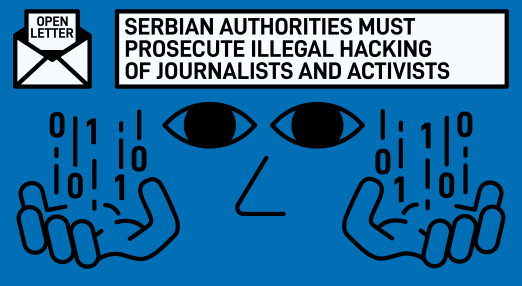
Serbian authorities must prosecute illegal hacking of journalists and activists
Today, 19 December, European Digital Rights (EDRi) and 58 organisations urge the European Union’s institutions to take action to stop the Serbian authorities’ illegal use of spyware to target journalists, activists, and members of civil society.
Read more
-

New European Commission confirmed: our takeaways on what to expect
On 1 December 2024, the new political leaders of one of the EU’s most powerful institutions – the European Commission – officially took office. As part of their nomination process, they shared their digital visions for the next five years. Spoiler alert: the fight for digital rights will be as important as ever, with data protection, encryption and privacy all on the chopping block.
Read more
-

Statement: EU takes modest step as AI law comes into effect
The EU Artificial Intelligence (AI) Act will finally come into force on August 1, 2024. While it's disappointing that the final law did not put people and their rights at the centre, it still contains some silver linings.
Read more
-
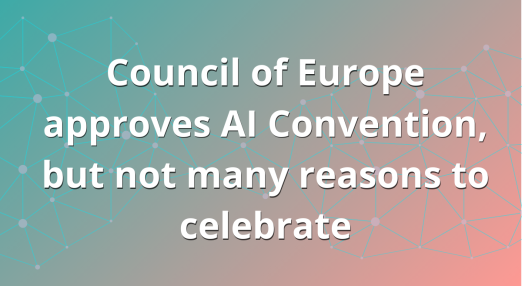
Council of Europe approves AI Convention, but not many reasons to celebrate
EDRi-member ECNL is not rejoicing at the adoption of Council of Europe’s AI Convention because of the significant flaws in the final text
Read more
-

The new EU Commission must address information power
Ahead of the European Parliament elections, ARTICLE 19 shares its recommendations for the new European Commission, urging it to strive for a more open information environment across the EU.
Read more
-

EDRi and Reclaim Your Face campaign recognised as Europe AI Policy leaders
EDRi and the Reclaim Your Face coalition were recognised as the Europe AI Policy Leader in Civil Society for our groundbreaking work as a coalition to advocate for a world free from biometric mass surveillance.
Read more
-
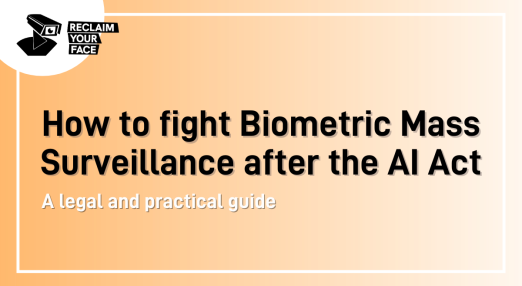
How to fight Biometric Mass Surveillance after the AI Act: A legal and practical guide
The EU's Artificial Intelligence Act has been adopted, laying out an in-principle ban on live mass facial recognition and other public biometric surveillance by police. Yet the wide exceptions to this ban may pave the way to legitimise the use of these systems. This living guide, for civil society organisations, communities and activists, charts a human rights-based approach for how to keep resisting biometric mass surveillance practices now and in the future
Read more
-
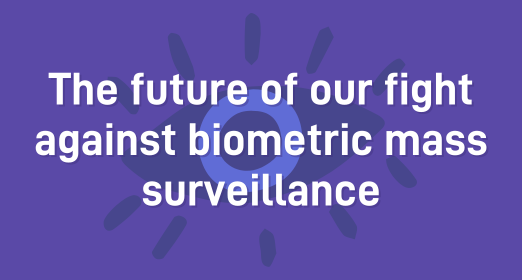
The future of our fight against biometric mass surveillance
The final AI Act is disappointingly full of holes when it comes to bans on different forms of biometric mass surveillance (BMS). Despite this, there are some silver linings in the form of opportunities to oppose BMS in public spaces and to push for better protection of people’s sensitive biometric data.
Read more
-
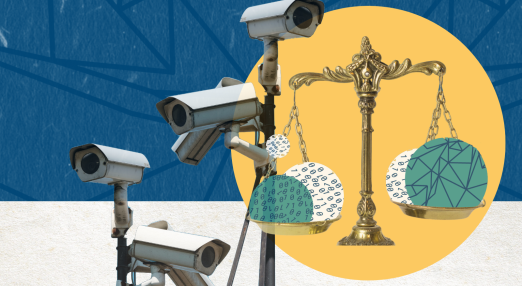
Packed with loopholes: Why the AI Act fails to protect civic space and the rule of law
The European Parliament approved the AI Act on 13 March 2024, thus marking the end of a three-year-long legislative process. Yet to come are guidelines and delegated acts to clarify the often vague requirements. In this article, ECNL takes stock of the extent to which fundamental rights, civic space and the rule of law will be safeguarded and provide an analysis of key AI Act provisions.
Read more
-

The two sides of web scraping: When data collection becomes a double-edged sword
Emerging AI technology often relies on methods of data collection – such as web-scraping – which can become a double edged sword when not used with safeguards and transparency or in ways that are unlawful. These methods have been used to achieve several key victories for digital rights, but can also be exploitative.
Read more
-
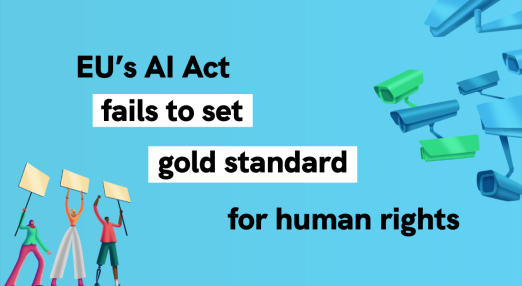
EU’s AI Act fails to set gold standard for human rights
A round-up of how the EU Artificial Intelligence (AI) Act fares against the collective demands of a broad civil society coalition that advocated for prioritising the protection of fundamental human rights in the law.
Read more
-

Council to vote on EU AI Act: What’s at stake?
The EU Council is set to vote on the AI Act on 2 February after three years of negotiation on this legislation. Our civil society AI coalition summarises the latest updates, what is at stake, and civil society's views on the AI Act.
Read more
